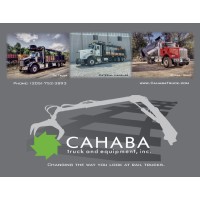
PowerRail
PowerRail is a United States-based company, with additional locations in various parts of the world. CEO, Paul Foster, originally formed PowerRail in 2003 in Wilke-Barre, Pennsylvania. Today our Corporate Offices and Main Distribution Center are located in Exeter, Pennsylvania. PowerRail is a certified AAR M-1003 distributor, manufacturer and remanufacturer of aftermarket locomotive parts, offering a wide range of products. We are North America’s leading aftermarket parts provider, supporting both EMD and GE locomotives. In addition to our broad locomotive line, we also provide products for Passenger Transit, Marine and Power Generation markets. Our offering of products includes New and Unit Exchange Remanufactured components to accommodate any budget. Backed by our extensive Engineering and Development Departments, we continually strive to provide Enhanced Products that reduce costs associated with field failures and downtime. From Customer Service, Manufacturing, Quality & Technical Support, Inside & Field Sales, Warehouse & Shipping, PowerRail has only one goal in mind...your total satisfaction.






